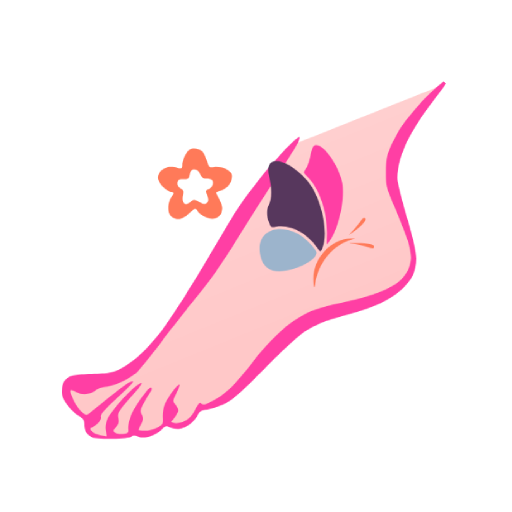Suppose you’ve ever experienced a sudden, sharp pain in your calf, followed by an inability to walk correctly. In that case, you may have encountered a muscle injury. These injuries can be not only painful but also quite frustrating. This article will explore the causes, symptoms, diagnosis, treatment options, and prevention strategies for calf muscle injuries. We’ll also discuss the road to recovery and avoiding future incidents.
Understanding the Calf Muscle Injury
What Causes a Calf Muscle Injury?
Calf muscle injuries can occur for various reasons, the most common being overexertion or sudden movements. Athletes and individuals who engage in high-impact activities, such as running and jumping, are particularly susceptible. When your calf muscle is stretched beyond its limits, it can lead to strains or tears.
What are the 4 symptoms of a pulled calf muscle?
- Sharp Pain: One of the hallmark signs of a pulled calf muscle is experiencing sudden, acute pain in the calf area. This pain can be intense and may make it difficult to continue with any physical activity.
- Swelling: Swelling or inflammation is another symptom often accompanying a pulled calf muscle. The affected area may become visibly swollen, and you may notice redness or warmth around the injury.
- Muscle Stiffness: A pulled calf muscle can lead to muscle stiffness. This stiffness can make it challenging to move the affected leg and cause discomfort, especially when trying to bend the ankle or knee.

- Difficulty in Walking: Due to the pain, swelling, and stiffness, individuals with a pulled calf muscle often find it difficult to walk normally. The pain and discomfort can limit your ability to put weight on the affected leg and may result in a noticeable limp.
If you experience these symptoms, seeking proper medical attention and following the recommended treatment plan to facilitate a smooth recovery is essential.
The Importance of Prompt Medical Attention
When you suspect a calf muscle injury, seeking immediate medical attention is crucial. While some minor injuries can heal with rest and self-care, more severe cases may require professional evaluation to prevent complications or long-term damage.
Diagnosing a Calf Muscle Injury
Seeking Professional Help
If your calf injury is severe or persists, consult a healthcare professional. They will perform a physical examination and may recommend imaging tests, such as an ultrasound or MRI, to assess the extent of the damage.
Self-Assessment and Home Care
For milder calf muscle injuries, self-assessment can help determine the appropriate care. Rest, ice, compression, and elevation (RICE) are the initial steps to take at home. However, consult a healthcare provider for guidance if the pain persists or worsens.

Treatment Options for Calf Muscle Injuries
Rest and Elevation
Resting the injured calf is vital for recovery. Elevate your leg to reduce swelling and improve blood circulation, which aids the healing process.
Ice and Compression
Applying ice and compression can alleviate pain and reduce inflammation. Make sure to use a cloth or towel as a barrier between the ice and your skin to prevent frostbite.
Medications for Pain and Inflammation
Ibuprofen or acetaminophen can help manage pain and reduce inflammation. Follow your doctor’s advice regarding medication.
Physical Therapy and Rehabilitation
Physical therapy plays a significant role in calf muscle injury recovery. A trained therapist can guide you through exercises that strengthen the calf muscles and improve flexibility.
Preventing Calf Muscle Injuries
Proper Warm-Up and Stretching
Before engaging in physical activities, warm up your muscles with gentle exercises and follow them with stretching. This prepares your calf muscles for more intense movements and reduces the risk of injury.

Choosing the Right Footwear
Selecting appropriate footwear, especially for sports and physical activities, can provide better support and reduce the risk of injury.
Gradual Increase in Physical Activity
Avoid sudden increases in the intensity of your workouts. Gradual progress allows your calf muscles to adapt and grow stronger over time.
Road to Recovery
Patience and Persistence
Recovering from a calf muscle injury takes time. Be patient and follow your healthcare provider’s recommendations diligently.
When to Consult a Specialist
If your injury does not improve or recurs frequently, consult a specialist, such as a sports medicine physician, who can provide more advanced treatment options and preventive strategies.
Tips for Preventing Recurrence
After recovering from a calf muscle injury, taking measures to prevent future incidents is essential. Follow a proper warm-up routine, maintain good muscle conditioning, and listen to your body’s signals.
My Calf Popped, and Now I Can't Walk😢https://t.co/DMPupWbF4E#feetcare #feetpics #feetbeauty pic.twitter.com/D2HMkVzCwn
— Sellfeetpics (@sellfeetpicsco) October 11, 2023
How long does it take for a calf muscle to heal?
Calf muscle injuries are a common concern for individuals of all activity levels. A calf muscle injury can be painful and debilitating whether you’re an athlete or simply dealing with everyday activities. This article will explore the intricacies of calf muscle injuries, including their causes, symptoms, and, most importantly, how long it takes for a calf muscle to heal.
How do I know if my calf injury is serious?
To assess how long it will take for a calf muscle to heal, it’s essential to determine the severity of the injury. This can range from mild strains to severe tears, each requiring different approaches to healing.
What is the fastest way to heal a calf muscle?
While healing time varies, there are strategies to expedite the recovery process. These include following medical advice, avoiding re-injury, and maintaining a healthy lifestyle.
Conclusion
Calf muscle injuries can be painful and debilitating. Still, with the proper care and prevention measures, you can effectively manage them and reduce the risk of recurrence. Whether you’re a professional athlete or enjoy an active lifestyle, taking your calf health seriously is critical to staying on your feet.
FAQs
How long does it take to recover from a calf muscle injury?
Recovery time varies depending on the severity of the injury. Mild strains may heal in a few weeks, while more severe tears can take several months.
Can I prevent calf muscle injuries altogether?
While you can’t guarantee prevention, you can significantly reduce the risk by following proper warm-up routines, maintaining muscle strength, and choosing suitable footwear.
When should I see a doctor for a calf muscle injury?
If the pain is persistent, or if you notice signs of severe damage, such as severe swelling or deformity, consult a doctor promptly.
Are there any long-term consequences of untreated calf muscle injuries?
Untreated calf muscle injuries can lead to chronic pain, muscle weakness, and an increased risk of future injuries.
Can I return to sports or physical activities after a calf muscle injury?
Most individuals can return to their activities after fully recovering with proper rehabilitation and guidance.








